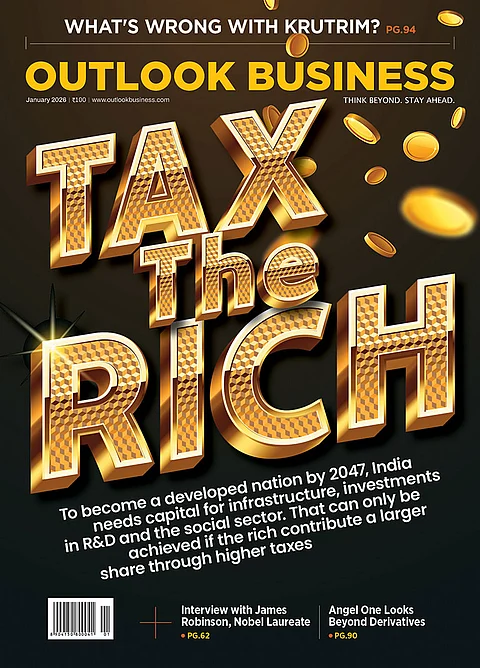Keshavdev: Kavita, in your 2008 paper you said that dual GST is welcome, but there should be enough time for taxpayers to make that transition. What could the government have done differently in this regard?
Rao: Let me put it in two ways. Firstly, I would like to know the rules well in advance so that people can prepare the IT systems and other things. By trying to play with it and still not finalising it, what you are doing is pushing the cost of transition. This, at a time when the taxpayer should be dealing with invoicing in GST. Second, I am very uncomfortable when the government goes out and announces a month-and-a-half in advance what the rate structure is going to be because that allows everybody to start lobbying that my goods need to be here, my services need to be there and so until the penultimate day you keep seeing changes in rates.
That does not give a certainty to anybody as to what exactly is going to roll out the next day. Recently, I was at another gathering about GST and there was this provision for e-waivers that was being discussed. It is not yet ready so we're rolling out a system that the government is not equipped to deal with. We have sort of rushed this. Unfortunately, we keep fine-tuning our product as we call it, but that is a hurdle, which will result in teething problems.
Keshavdev: Has GST then been a political consideration to ensure that the government has done big bang reforms, which was the overriding concern, than the interest of the industry?
Rao: It was important, politically. For the government to have let another deadline slip was not a smart thing to do. Even if you pushed it back by two months you would still be dealing with this kind of a GST. I believe we must know to close the door on this and say we did GST, now we will improve it. Let's not go back to the blackboard all the time and re-design. Some economists say that we would like to see a single-rate structure and then there are other economists who argue against the same. A large number of rates potentially allows people to examine whether they should reduce that good or this good and if they should exclude certain goods. In that case, the signal the government sends out is that low tax goods are preferred to higher taxed goods. Such issues are what we call distortions in decision-making but having said that, I hope we will have some rationalisation of rates going forward.
Keshavdev: Mohan, what kind of impact has GST had on SMEs? Have they shut shop or are they grappling with business?
Mohan: The reverse tax mechanism is such that if somebody is not registered, then the buyer has to pay the tax and take the credit. What happens that way is that you immediately lose business. And the number of units doing this is very high. We have to see the socio-economic angle as well. We welcome it but the regime needs some additional backups to take care of the micro units to ensure that they are made part of the system.
There should be incentives and other things made available to them. We need to give them some time otherwise they will lose out on business. Immediately being removed from the system is very bad for them and for the economy because so many people will lose their jobs. Banks are going to bear the brunt as NPAs by micro industries. It may not be known to bigger corporates but it is even going to affect the industry, especially ancillaries.
Keshavdev: So have you seen any firms shutting down, any anecdotes you could share?
Mohan: We are educating people about it. Earlier, in some areas - especially those such as job working where they source the material, convert it and give you - there was no tax at all. But now these areas have been taxed at 18%. They might find it very difficult. In other areas like textile, the rate is 5%. There need not be any anomaly in this - either you say there is no tax, or you say this is the tax that is uniform. I don't find any difference between one job worker and another. He is converting and giving it back to the customer so let us have a lower entry level to help them enter. Then you can get them into better areas by giving them other benefits such as income tax, buying hardware and software, investments, etc.
Banks can help out here. The statutory payment is where it is going to hurt the most. If they don't pay in time they will not be able to do the business. The government should look at it as to how this can be mitigated by saying that banks can give additional working capital towards statutory payment.
Keshavdev: How are you handling the transition in your business? Are you also seeing stress in terms of micro and small enterprises?
Chawla: The pain in the MSME sector is by and large the same everywhere in India. However, I feel it was the best time to enforce this. Let me explain why the timing was right. This year, Diwali arrives early on October 19. We assumed that whatever be the confusion, it would be clarified by July, so we can have a good festive sale season that would fall in September and October.
I believe that GST is not a change in the tax system. It's a business transformation. In fact, in my own ogranisation, we conducted more number of training sessions for the purchase and sourcing departments than we did for accounts. The process is mainly related to sourcing. So you need to focus on building a reliable supply chain. For example, one of my big customers, Endurance Technologies, present here today, has over the past three-four months done a structured planning in anticipation of GST. They have trained the vendors and supply-chain people and have calculated what would be the GST impact on supply prices.
The biggest change, as I see it, is that there is no more a tax on production. It is a consumption tax. It will streamline many of our operations like identifying people going in for wrong sources, wrong billing, wrong invoicing. Traditionally, every business would have three types of stocks - one that it declares to the banker on March 31st; second, when it files the balance sheet with the income tax; and third would be the actual stock in the factories. That is the system we have lived with. Thus, there would be pain as it is all set to change. I believe it is a remarkable decision at the right time. And I am sure whatever pain points we raise, will be resolved by the government.
Keshavdev: Bela, how are you handling your businesses? Is there a vendor-distributor rationalisation? Is there hand-holding that's happening?
Sheth-Mao: We have been a geographic nation so far. Now, GST is making us an economic one. We were never one country economically, we were 30 different entities. So it is going to take some time and cause some pain. There is no quick fix for it. The one thing the government could have done better is that it could have brought out its policy on transition stock earlier - what and how companies would deal with the transition stock. Had that come out three months earlier, the issue of de-stocking and about the past two months not being good for the industry would have definitely reduced in impact.
Yes, we have to deal with the implementation and technological changes. We had 10-15 sessions with our distributors and vendors. What we hear from on the ground today is that our organisation was one of the first to be ready with GST, prepared with answers for distributors and one of the first to engage and hand-hold them all the way through the supply chain.
Keshavdev: Mukesh, how have you been assisting your clients with the transition?
Butani: I don't think there is any one approach to deal with this. The challenges in this sector are different from those faced by the manufacturing sector. Challenges for the manufacturing sector, which are multi-plant and multi-warehouse, are different than from single-plant or single-warehouse companies. Thus, the solutions will vary. From a policy standpoint, it seems to me that the manufacturing sector will settle down soon and it is the services sector that will have a problem. This is because the compliance requirement for the services sector has multiplied.
This is the second of a two-part series. Read the first part here.











